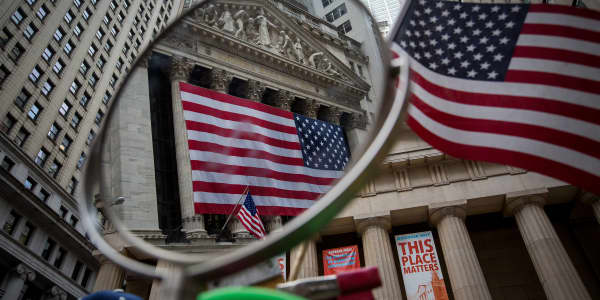Starting a company doesn't require a business degree, but B-schools are increasingly getting into the start-up game. And more students than ever are using their experience to develop ideas and launch companies, both before and after graduation.
What does business school have to offer entrepreneurs? Some of the most successful founders say they acquired skills there that helped them build companies for the long term, as well as a network of alumni and professors that linked them to early investors.
Poets & Quants, a leading website for business school students, gave CNBC an early look at its first list of the top 100 MBA start-ups of the past five years. Here are the crème de la crème of that list, counting down from No. 10.
—By CNBC's David Spiegel
Posted 20 Nov. 2013
10. Rent the Runway
Founders: Jennifer Hyman, Jennifer Fleiss (Harvard)
Funding: $54.4 million
Rent the Runway, named a CNBC Disruptor of 2013, is making high fashion more accessible. As of June, it had more than 3 million members.
The Harvard Jennifers (they prefer Jenn and Jenny) have some serious street cred. Hyman worked for Starwood Hotels and WeddingChannel.com. Fleiss was with Goldman Sachs and Morgan Stanley. They met in Cambridge, Mass., and are building their business in Manhattan.
9. Warby Parker
Founders: Neil Blumenthal, David Gilboa, Jeffrey Raider, Andrew Hunt (Wharton-University of Pennsylvania)
Funding: $55 million
Also named a CNBC Disruptor 50 this year, Warby Parker has the overpriced eyewear market on notice. Using e-commerce to keep overhead down, it's able to sell designer spectacles at a fraction of their regular prices.
Warby's four founders, who met at the Wharton School, said they were united by a "penchant for outrageous outfits" and a "strong desire to make the world a better place."
CNBC was impressed not only by their ambition but by their appetites: Warby Parker employees consumed 3,600 bagels and more than two tons of salad in 2012, according to its annual report.
8. Counsyl
Founders: Ramji Srinivasan, Eric Evans, Balaji Srinivasan (Stanford)
Funding: $60.2 million
What do you get when Stanford medical students catch the entrepreneurial bug? Answer: an innovative, scalable preventive solution that could reduce health-care costs dramatically.
Counsyl developed a genetic test for couples planning to have children that identifies probabilities that babies will be born with certain disorders or diseases. It then provides counseling and presents the pair with options.
Counsyl's goal is to make the test affordable for anyone planning a family. It's gotten the insurance industry's attention, as more and more plans are covering the test and encouraging its use.
7. Locu
Founders: Rene Reinsberg, Marc Piette, Marek Olszewski, Stelios Sidiroglou-Douskos (MIT Sloan)
Funding: $70 million
Unlike some entrepreneurs who have an idea and then go to business school to cultivate it, Locu's founders met at MIT in 2010. They say they came up with their business idea under the supervision of Sir Tim Berners-Lee, who invented the World Wide Web.
Locu's app centralizes online information for local businesses. For example, a restaurant would input menu changes just once rather than having to enter them repeatedly on its website, Facebook page, Yelp site and wherever else the information is found.
6. SoFi
Founders: James Finnigan, Mike Cagney, Daniel Macklin, Andy Carra, Ian Brady (Stanford)
Funding: $77.2 million
SoFi is on a mission to fix the broken $1 trillion student loan market. It connects students with alumni backers through a dedicated lending pool that provides better-than-market rates to borrowers and better-than-market returns to backers.
Despite their education, the founders aren't sold on the idea that entrepreneurship can be taught.
"It's not black or white," Macklin said. But, Finnegan added, "the education gives you the confidence to believe it can be done, that you're able to take the risk."
The ultimate goals go beyond student loans, though. SoFi wants to redefine community banking through social affinity groups.
5. Okta
Founders: Frederic Kerrest, Todd McKinnon (MIT Sloan)
Funding: $79.3 million
Meeting as colleagues at Salesforce.com, Kerrest and McKinnon noticed that many enterprise customers had problems with ID and access management.
"We realized it was a big problem and was going to be a big opportunity," Kerrest said.
He left Salesforce in 2007 to study entrepreneurship at MIT's Sloan School of Management, where he earned his MBA and received the Patrick J. McGovern Jr. Entrepreneurship Award. Business school taught him how to build and finance, how to pitch to VC firms and how to motivate people, he said.
4. Karma Science
Founders: Lee Linden, Ben Lewis (Stanford)
Funding: $80 million
You might know Karma Science better by its new name: Facebook Gifts. Facebook bought the business in May 2012, around the same time it purchased Instagram and had its tumultuous IPO.
What attracted Mark Zuckerberg and his friends? A simple app that lets users buy presents for friends and family, and lets recipients trade a gift for something they really want or donate the value to charity.
It also spares the giver of having to locate the recipient's address.
3. Skybox Imaging
Founders: John Fenwick, Dan Berkenstock, Ching-Yu Hu, Julian Man (Stanford)
Funding: $91 million
Later this year, Skybox will send up the first of at least 24 small satellites that will eventually form a constellation able to record HD images of any spot on earth. Skybox will then analyze the images for its business and government clients, helping them to make data-driven decisions.
The Google "do no evil" mantra (in this case, with satellite surveillance) idea sounds great, but will it fly in this hypersensitive, post-Edward Snowden world? At least six VC firms are willing to take that chance as Skybox prepares for launch—literally.
2. Viki
Founders: Changseong Ho (Stanford), Razmig Hovaghimian (Stanford), Jiwon Moon (Harvard)
Funding: $200 million
Meet the community that discovered "Gangnam Style" before the rest of us did.
What began as a class project to develop a tool to learn a foreign language using YouTube videos has turned into the "Hulu for the rest of the world" less than four years later.
Officially launched in December 2010, Viki (Video Wiki = Viki) is powered by a community of rabid fans who share and help subtitle content in dozens of languages.
Viki says its users are primarily young women turning to K-Dramas (South Korean) and telenovelas to satisfy their appetite for soap operas. Earlier this year, Japan's Rakuten, that country's version of Amazon.com, scooped up Viki for about $200 million.
1. Wildfire
Founders: Victoria Ransom (Harvard) and Alain Chuard (Stanford)
Funding: $450 million
This provider of social media marketing software was conceived at McCalester College in Minnesota by Victoria Ransom and her now-husband, Alain Chuard. The two met and fell in love as undergrads, caught the entrepreneurial bug, started a business and then went to business school to learn how to build and operate a big company.
Even though they were engaged by then, Ransom and Chuard chose schools on opposite coasts to expand their network and increase their funding opportunities. That move seems to have paid off, as Google bought Wildfire last year for $450 million.




